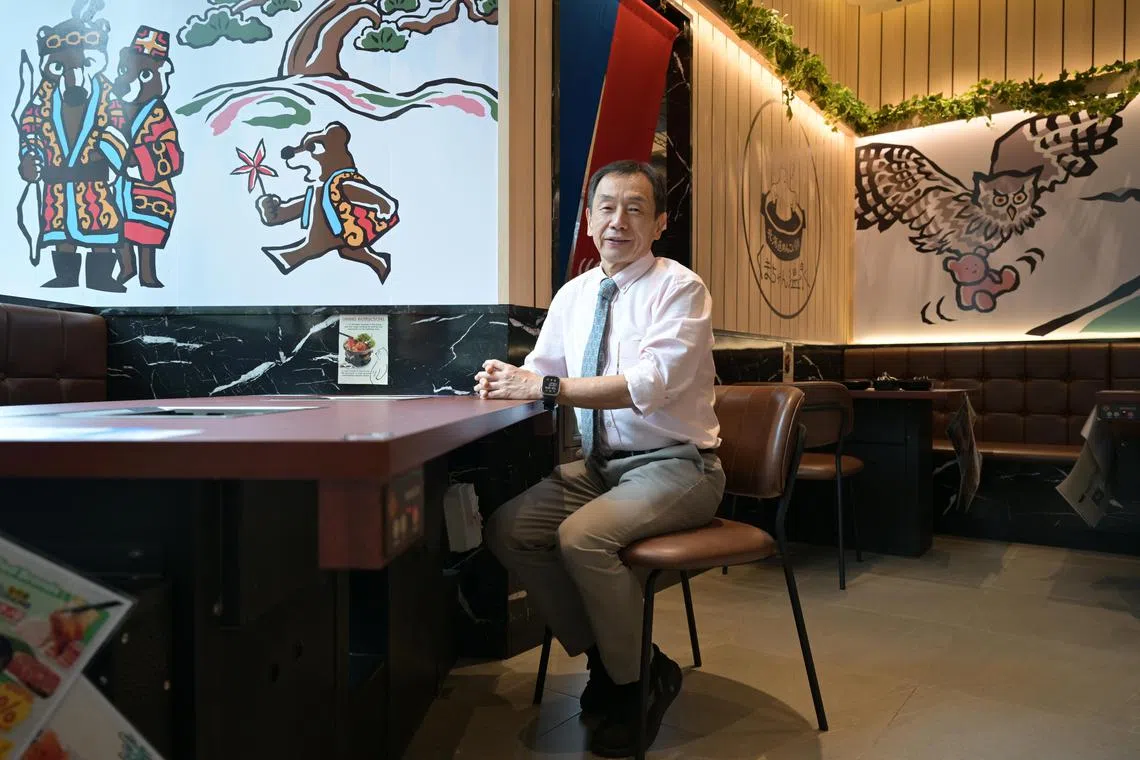Japan Foods to streamline operations in tough business environment after reporting $2.9m loss
Sign up now: Get ST's newsletters delivered to your inbox

Japan Foods’ franchised brands include teddy bear hotpot eatery Kumachan Onsen.
PHOTO: KUMACHAN ONSEN
Follow topic:
SINGAPORE – Japan Foods, which has franchised brands like Ajisen Ramen, may close more eateries as it continues to streamline operations and manage costs, after reporting a loss of $2.9 million for the nine months till Dec 31, 2024.
The group had already cut the number of its outlets from 84 to 82 at the end of 2024, it said on Feb 6 in a filing on the Singapore Exchange about its financial results.
In response to queries from The Straits Times, it said that it monitors its restaurant network closely and may not renew the leases of non-performing stores when the leases are up.
“As part of its restaurant portfolio management strategy, Japan Foods regularly reviews per-store performance and may undertake rebranding of stores to better suit the demographics at each location and optimise performance,” it added.
Its franchised brands include noodle restaurant Menya Musashi, gyoza eatery Osaka Ohsho and teddy bear hotpot eatery Kumachan Onsen.
It also has self-developed brands such as Tokyo Shokudo, Fruit Paradise and Milan Shokudo.
Revenue dropped by about $400,000, while its selling and distribution expenses increased by more than $4 million, it said.
“The group plans to rationalise its brand portfolio by focusing on its more established and proven brands,” Japan Foods said in its filing.
It intends to intensify marketing efforts to attract more diners, such as having seasonal promotions and offering discounts during off-peak hours, the company told ST.
“As part of its ongoing efforts to keep its brand portfolio exciting for diners, the group will continue to look out for evolving food trends and explore franchise opportunities with popular Japanese brands,” it said.
It added that the food and beverage industry here has been affected by the strong Singapore dollar, which has encouraged more Singaporeans to travel and spend overseas, in particular, Japan.
“The group expects its business environment to remain tough, with conditions further compounded by ongoing industry challenges, including manpower shortages, rising costs of operations due to inflation and changing consumer preferences,” it said.
The group’s revenue decreased $400,000, or 0.6 per cent, to $64.9 million in the third quarter of the 2025 financial year, mainly due to weak sales in November and December 2024, it said.
Its selling and distribution expenses increased $4.1 million, or 8.3 per cent, mainly due to higher manpower cost, utilities expenses and depreciation charges of right-of-use assets.

Japan Foods Holding chief executive Takahashi Kenichi at an outlet of one of the group’s franchised brands, hotpot eatery Kumachan Onsen, on Dec 12, 2024.
ST PHOTO: NG SOR LUAN
Other operating expenses increased by $700,000, or 90 per cent, as a result of an increase in the write-off of plant and equipment. These write-offs were due to the rebranding and closure of restaurants, as well as the relocation of a restaurant within VivoCity.
Overall, it recorded a net loss of $2.9 million, compared with a net profit of $700,000 in the third quarter of the 2024 financial year.
Japan Foods shares closed at 33 cents on Feb 7, a 1.5 per cent drop from its previous close of 33.5 cents.
Sue-Ann Tan is a business correspondent at The Straits Times covering capital markets and sustainable finance.


